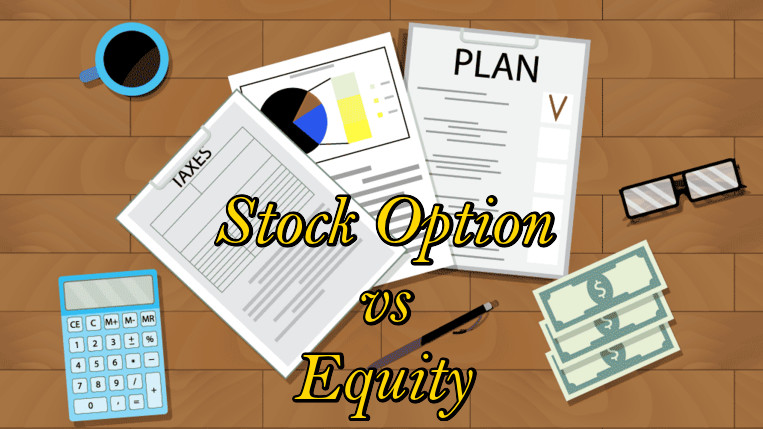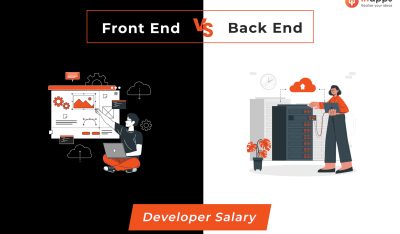The term Equity can mean stock or shares. It is often used to refer to stock options as well. Stock options give you the right to buy a certain number of shares at a certain price after a certain amount of time.
They do not represent ownership unless your right to buy them has vested.
Equity investment means ownership in a company. You buy equity when the stocks trade at a certain valuation, hoping the valuation will increase and your ownership position will become more valuable.

A Share of stock represents a small ownership piece of business. Most publicly traded businesses are organized as corporations, which issues a certain number of shares of common stock, with each share representing an equal ownership percentage, or equal equity percentage.
If you buy shares of common stocks, you participate in both profits and losses of that corporation, you get to vote at the annual meeting. But you are also not held personally liable for anything bad that happens at the company. That what happens when you own an equity position.
What Are Stocks?
When you purchase stock, you are purchasing equity in a company from someone who wants to sell it. when you sell stock that means you selling that equity to another buyer. Stock is a tradable form of equity. The reason tradable equity was invented because different people believe different things about the present and future value of a given company. Stock allows them to trade with each other based upon those different opinions and goals.
The price at which the employes can purchase shares is known as the exercise price. In most cases, it’s simply the market value of the stock on the grant date. If the stock price goes up by the time you vest, your option is considered “in the money,” meaning you can buy the shares at a lower price than they are now worth.

Advantages Of Stocks
- Tradable
Stock is tradable if it is registered with the SEC. There must be specific facts provided in that registration statement.
After being registered, stock can be traded. Sometimes it will be traded on large public exchanges and sometimes in private offerings. - Buy Or Sell
Most people think that they can buy and sell stock. However, there is another way to trade stock called “short-selling”. In this, an investor borrows shares from a brokerage and then sells them, hoping the stock will fall.
When the investor decides it has fallen for enough he/she then will buy back those borrowed shares that he/she sold and return them to the brokerage. So with the tradable stock, an investor can bet that a company’s value will go up or go down, and play both sides of the market. - Dividend payments
One of the top advantages is that many legacy stocks provide regular dividend payments to shareholders.
If a company’s cash flow is robust and uses only enough cash to pay expenses, to grow, to pay into employee pensions and so on, it might still have money left over. Some companies then give money to shareholders as a bonus for taking the risk of investing with them.
Stock Option
A stock option gives an investor the right but not the obligation, to buy or sell a stock at an agreed-upon price and date. There are two types of options puts and calls. Puts is a bet that a stock will fall and calls is a bet that a stock will rise. One contract represents 100 shares of the underlying stock.
Options For Stocks
- Styles
There are two different styles of options: American and European. American options can be exercised at any time between the purchase and expiration date. European options, which are less common, can only be exercised on the expiration date. - Expiration Date
Options do not only allow a trader to be on a stock rising or falling but also enable the trader to choose a specific date when they expect the stock to rise or fall by. This is known as the expiration date. - Strike price
The strike price determines whether an option should be exercised. It is the price that a trader expects the stock to be above or below by the expiration date. For Example:- If a trader is betting that International Bussiness Machine Corp (IBM) will rise in the future they might buy a call for a specific month and a particular strike price. - Contracts
Contracts represent the number of options a trader may be looking to buy. One contract is equal to 100 shares of the underlying stock. - Premium
The premium is determined by taking the price of the call and multiplying it by the number of contracts bought, then multiplying it by 100. If a trader wanted to bet the stock would fall they would buy the puts. - Trading Options
Options can also be sold depending on the strategy a trader is using. Continuing with the example above, if a trader thinks IBM shares are poised to rise, they can buy the call, or they can also choose to sell or write the put.
What are Equities?
Equities are ownership positions in an asset, usually a company. If you have 20% equity in a business, you own 20% of that company and get 20% of its profits. You have probably heard the term “home equity”, and that you need to pay a 20% down payment on a mortgage to buy a home.
The bank is telling you that you must buy 20% equity in that home -an ownership position- before they will let you borrow money to purchase the other 80% of that equity. Even then, the bank technically owns that other 80% because you owe them money.
Over time, you build equity by paying off the loan principal and get ownership. In the stock market, the more stock you buy, the more ownership you have in the company.

Advantages Of Equities
- Share In Profits
By owning equity in some security, corporations, or asset, your ownership grants you the right to collect a specific share of the profits of that security or other items.
Now, whether or not you actually get paid those profits or they get reinvested into the business, or used for some other corporate purpose. It will be determined by a board of directors and/or majority shareholders. - Not Personally Liable
As a common equity holder in a company, you are generally insulated from personal liability if something untoward happens involving the company. So if the board of directors is corrupt, a common equity holder is not going to be held personally accountable.That doesn’t mean that the value of the equity won’t fall. It probably will. But at least you won’t be on the hook for the money. - Less Complex
When it comes to equity ownership in a company, it’s much less complicated to compare if one is a holder of debt or bonds. You share in the profits or losses, you put up capital if needed, get dividend payments, and vote on company matters.With debt, things are far more complicated. There are often multiple tranches of debt, each with different rules, different ways to recoup principal if the company falls on hard times.
Equity vs Stock Option
“Not all Equity has a tradable stock, but all tradable stock involves equity.“
Equity is a bit trickier. At a high level, owning equity in a private company is a bet on the company’s future success. They are called ‘options’ for a reason, as stock options don’t actually imply ownership in the company, but rather the option to purchase the specified numbers of shares.

Different Types
Equity, at its basic level, is an ownership share in a company. Shares are issued in a series and are typically either labeled as common or preferred.
Employees are typically granted common stock. Which is different from preferred stock in that it carries no preferences, which are add-on perks that accompany the shares.
Equity is distributed to employees from an “option pool” a set amount of equity that can be distributed among employees. There are no hard and fast rules for how large or small an option pool maybe, But there are some common numbers.
Working Manners
Although there are a variety of ways to get equity as a startup employee the most common way is through stock options. A stock option is the guarantee of an employee to be able to purchase a set amount of stock at a set price regardless of future increases in value. The price at which the shares are offered is referred to as the “strike price” and when you purchase the shares at that price, you are “exercising” your options.
Exercising stock options is a fairly common transaction, but there are some additional rules among startups that could present problems.
“There’s a rule that if you leave a company your options expire in 30 or 60 days if you can’t buy them right then and there.”
Outside of stock options, a growing trend is the issuing of restricted stock units (RSU). These stock units are generally awarded directly to the employee with no purchase required.
Taxes
When you are granted equity by a startup, it may be taxable. The type of equity you receive, and whether or not you paid for it plays into the question.
For example, a stock option granted to an employee with a strike price equal to fair market value is not taxable to the employee. However, a grant of the actual stock is taxable to the employee if the employee does not purchase it from the company.
Standard stock options are known as incentives stock options(ISOs) by the IRS. ISO does not create a taxable event until they are sold.
Worth
Determining the true dollar value of your equity is very difficult. Usually, there is a range and it is dependent on the exit opportunities the company is pursuing.
The concept of value is further complicated by the potential legal and HR issues that arise around the conversation of equity value that founders could have with their employees. Most counsel will advise a founder to be very careful about having that conversation.
“You are getting an option in a privately held company – You can’t sell that stock.”
At the end of the day, it is an investment decision and a cash salary doesn’t always line up equally against equity, so it’s up to you to determine what risk you are willing to take. Just remember, if the startup isn’t acquired or doesn’t go public, your shares may be worth nothing.
Red Flags
Because equity compensation packages are different for each company at each individual stage, it can be challenging to vet the deal. But there are some red flags you can look out for.
A basic red flag would be is there anything that’s not standard. Another red flag could be how much equity you are being offered. If you are a very early employee and the opening offer is five basis points(0.05%), that could be indicative of a bad situation. Or, if the exercisability of grants differs wildly from employee to employee.
Source: InApps.net
Let’s create the next big thing together!
Coming together is a beginning. Keeping together is progress. Working together is success.



















